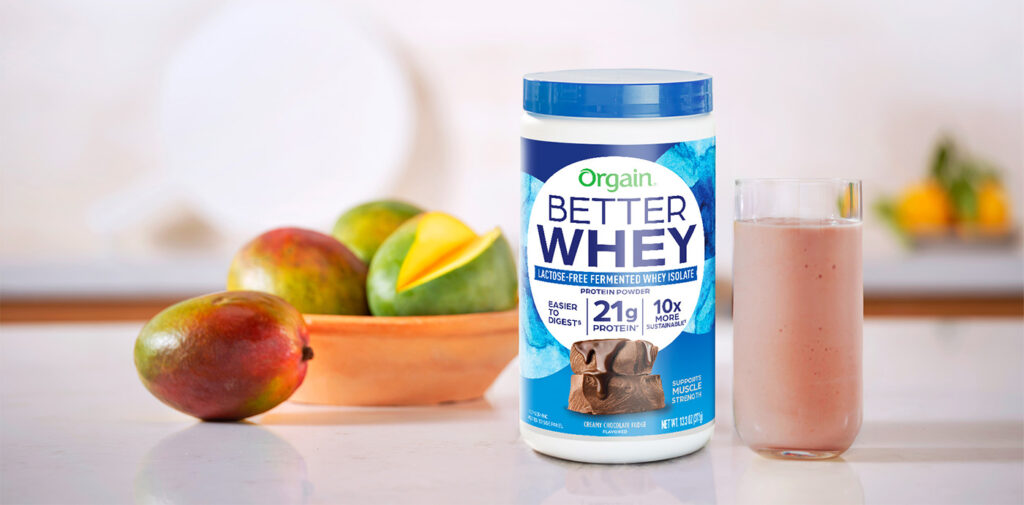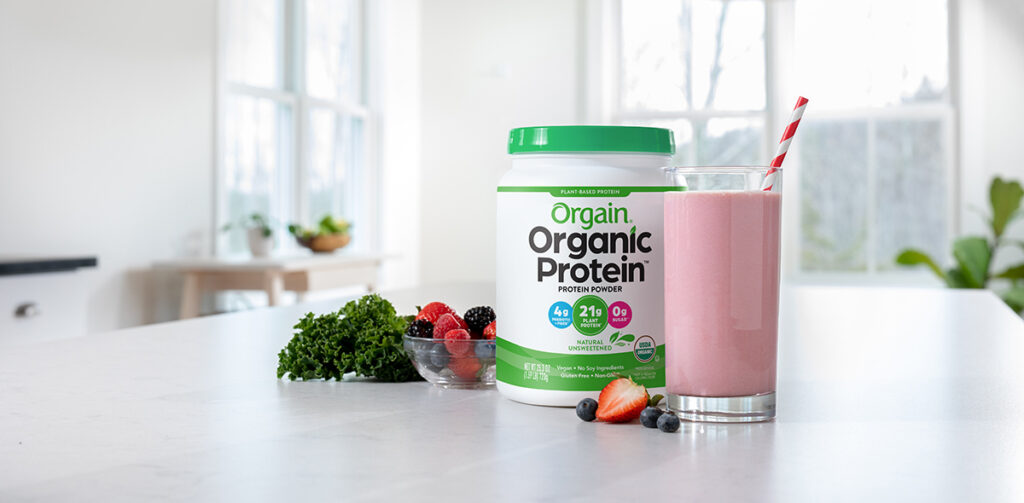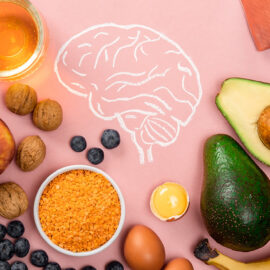Irritable Bowel Syndrome (IBS) is a chronic health condition that health care providers should be prepared to identify and help their patients with. This gastrointestinal (GI) disorder affects 7-16% (roughly 30 million) people in the US and 11% of all people world-wide.1-4 As awareness increases and diagnostic criteria are updated, some studies indicate that IBS is becoming diagnosed more often than previously. Researchers also hypothesize that rates may also be increasing post-pandemic related to the virus that causes COVID-19 and/or the associated stress of going through a pandemic.5 IBS can be categorized based on the type of gastrointestinal GI dysfunction including IBS with diarrhea (IBS-D), IBS with constipation (IBS-C), IBS mixed (IBS-M) and is often accompanied by bloating and pain.1,2,6 Data shows that IBS affects women slightly more often than men (55% and 45% respectively) and the average age that a patient develops their first symptoms is before 40 with onset of symptoms less likely in people 50 or older.1,7,8
There isn’t one single diagnostic test for IBS, creating challenges for health care practitioners and patients alike. Current guidelines are based on a collection of symptoms including bowel dysfunction in addition to pain or discomfort.1,4,6,8-11 Therapies commonly prescribed for people with IBS include pharmaceuticals and supplements from fiber and osmotic laxatives for IBS-C, antidiarrheal agents, non-systemic antibiotics such as rifaximin for IBS-D, antispasmodics or peppermint oil for pain as well as dietary interventions such as the low fermentable oligosaccharides, disaccharides, monosaccharides and polyols (FODMAP) diet and gut microbiome modification through fiber, probiotic foods or supplementation.1-4,7,8,12-14
The mechanism behind IBS is complex. Many experts believe that it is a gut-brain interaction disorder that correlates with the central nervous system (CNS) and is mediated by visceral hypersensitivity. GI motor and sensory problems, chronic, low-grade inflammation of the digestive tract, problems with GI motility, bile acid malabsorption, and the gut microbiome also may be involved.1-4,7,11,12 Dietary strategies should be personalized for each patient and range from increasing to decreasing or altering the type of fiber a person consumes and may also focus on probiotic foods or supplements. IBS treatment requires a multidisciplinary approach and is a critical place for health care providers to offer their expertise and support.
Dietary Interventions for IBS
A strategic and personalized approach to IBS is a critical place for health care providers to support their clients. From assessing potential triggers in the diet to strategizing how to alter fibrous food intake (increasing or decreasing) or increase probiotics from food or supplements, diet is important. The low FODMAP diet is one of the most studied and common elimination diets used in people with IBS but there are several possible approaches and there are other dietary strategies to consider as well.
The Low FODMAP Diet
By reducing certain categories of short-chain fermentable carbohydrates, the low FODMAP diet could help reduce intestinal osmolarity, water volume, and gas production, helping to control symptoms.2,11 FODMAPs are found in some fruits, vegetables, dairy (lactose), artificial sweeteners, honey and agave, and wheat.11 A recent review and meta-analysis including 12 papers (n=722) found that a low FODMAP diet reduced severity of IBS symptoms by a moderate to large amount and also increased quality of life when compared to a standard control diet.2 Several other large studies on a low FODMAP diet for IBS symptoms found up to a 70% reduction of pain and bloating.11
The low FODMAP diet is actually an elimination diet that should be run for six to eight weeks at which time specific FODMAP groups should be systematically added back in and ‘tested’ while tracking symptoms to help identify problematic foods for the patient.2 The low FODMAP diet is one of the most highly recommended and evidence-based diets for IBS but it’s restrictive and may affect quality of life while in the elimination phase.2 Studies suggest that patients are more likely to experience nutritional deficiencies, anxiety, disordered eating, and decreased quality of life if they are self-directed without their physician and dietitian to support them.15
Other Dietary and Lifestyle Strategies for IBS
The low FODMAP diet can be confusing and hard to follow for many people. There are other dietary and lifestyle strategies that have proven benefits though many need more research to elucidate their potential for improving symptoms. An important study on patients with IBS-C compared three groups (n=33 each) who received traditional dietary advice (eating regular, balanced meals, adequate hydration, reducing caffeine, alcohol, and sugar sweetened beverages, high fat, spicy, or fried foods, and limiting fruits and high-gas foods such as beans), a low FODMAP diet, or a gluten-free diet.13 All of the groups experienced significant improvements in their individual symptoms but notably, there was no significant difference between groups.13 The traditional dietary advice group found their diet more affordable, less time consuming, and easier to follow when eating with others.13 A 2024 unblinded clinical trial (n=48) compared a group following the Mediterranean diet vs a habitual diet for six weeks and found improvements in both GI and psychological symptoms in the intervention group offering another possible beneficial dietary plan.16
Probiotics, fermented foods, fiber, and supplements have also been studied for IBS though current research is limited. Studies indicate that consuming fermented foods or taking probiotic supplements may inhibit, displace, or interfere with the way pathogenic gut microbes adhere to the gut lining, supporting a healthy intestinal barrier and possibly helping reduce IBS symptoms.4,7,11,17 Specific probiotics such as VSL#3 have been shown to therapeutically reduce colonic permeability and IBS-associated abdominal pain in clinical trials.18 Soluble, prebiotic fiber such as psyllium has been used to reduce bloating, abdominal distention, and gas while ground flaxseed has also been shown to improve stool consistency in people with IBS. Researchers hypothesize that these prebiotic fibers may improve gut function and the gut microbiome environment because they are a preferred energy source for more favorable bacteria that appear to be protective against IBS such as Bacteroidetes, Bifidobacterium, Faecalibacterium prausnitzii, and genera Coprococcus and Anaerostipes.4,8-10 The gut microbiome also creates metabolites such as short chain fatty acids including butyrate which has shown positive effects on IBS symptoms in some studies regarding decreased inflammation and better intestinal integrity, motility, and improved immunity.10
Psychotherapy support including stress reduction techniques are advised as a first line therapy for IBS. Because of the likelihood that IBS has a gut-brain connection and many patients notice a worsening of symptoms with stress or anxiety, health care providers should screen and refer out or treat mental health (depending on their scope of practice) for all patients with IBS.1,3 A large review of articles on psychotherapy and IBS (n=28 articles) found that cognitive behavior therapy significantly reduced IBS symptom severity, frequency, and pain. Both mindfulness and hypnotherapy were also successful at improving symptoms.3 A very large prospective analysis (n=362,193) also found that both sedentary behavior and lower sleep duration ≤7 hours per day were significantly associated with IBS incidence.16
Key Takeaways for Practitioners
Health care practitioners should create an individualized treatment plan that offers reassurance, provides education, and builds a positive relationship with their patients.
Practitioners should target each patient’s most bothersome symptoms which, depending on scope of practice, could include pharmaceuticals or supplements, as well as dietary education and psychological support for living with problematic symptoms or treating underlying stress and anxiety that could make it worse.1,3,4
From dietitians to physical therapists, nurses, doctors, and all other allied health professionals, seeking ongoing professional education and resources may be needed as IBS can be encountered in any clinical setting and with otherwise healthy patients as well.20 IBS patient interviews have shown that patients seek clear and open communication from their providers as well as collaboration from an interdisciplinary team.20 Developing trust, validating patients’ lived experiences, and empathy should be a hallmark of IBS patient care.
References:
- Camilleri M. Diagnosis and treatment of irritable bowel syndrome: a review. JAMA. 2021;325(9):865-77.
- van Lanen AS, de Bree A, Greyling A. Efficacy of a low-FODMAP diet in adult irritable bowel syndrome: a systematic review and meta-analysis. European journal of nutrition. 2021;60:3505-22.
- Slouha E, Patel B, Mohamed A, Razeq Z, Clunes LA, Kollias TF. Psychotherapy for Irritable Bowel Syndrome: A Systematic Review. Cureus. 2023;15(12).
- Black CJ, Ford AC. Best management of irritable bowel syndrome. Frontline Gastroenterology. 2021;12(4):303-15.
- Almario CV, Sharabi E, Chey WD, Lauzon M, Higgins CS, Spiegel BM. Prevalence and Burden of Illness of Rome IV Irritable Bowel Syndrome in the United States: Results from a Nationwide Cross-Sectional Study. Gastroenterology. 2023;165(6):1475-87.
- Lacy BE, Patel NK. Rome Criteria and a Diagnostic Approach to Irritable Bowel Syndrome. J Clin Med. 2017;6(11):99.
- Simon E, Călinoiu LF, Mitrea L, Vodnar DC. Probiotics, prebiotics, and synbiotics: Implications and beneficial effects against irritable bowel syndrome. Nutrients. 2021;13(6):2112.
- Sperber AD. epidemiology of IBS and other bowel disorders of gut–brain interaction (DGBI). Alimentary Pharmacology & Therapeutics. 2021;54:S1-1.
- Agnello M, Carroll LN, Imam N, et al. Gut microbiome composition and risk factors in a large cross-sectional IBS cohort. BMJ open gastroenterology. 2020;7(1):e000345.
- Jiang W, Wu J, Zhu S, Xin L, Yu C, Shen Z. The Role of Short Chain Fatty Acids in Irritable Bowel Syndrome. J Neurogastroenterol Motil. 2022;28(4):540-548.
- Galica AN, Galica R, Dumitrașcu DL. Diet, fibers, and probiotics for irritable bowel syndrome. J Med Life. 2022;15(2):174-179.
- Paine P. current and future treatment approaches for pain in IBS. Alimentary Pharmacology & Therapeutics. 2021;54:S75-88.
- Rej A, Sanders DS, Shaw CC, Buckle R, Trott N, Agrawal A, Aziz I. Efficacy and acceptability of dietary therapies in non-constipated irritable bowel syndrome: a randomized trial of traditional dietary advice, the low FODMAP diet, and the gluten-free diet. Clinical gastroenterology and hepatology. 2022;20(12):2876-87.
- Black CJ, Burr NE, Camilleri M, et al. Efficacy of pharmacological therapies in patients with IBS with diarrhoea or mixed stool pattern: systematic review and network meta-analysis. Gut. 2020;69(1):74-82.
- Simons M, Taft TH, Doerfler B, et al. Narrative review: Risk of eating disorders and nutritional deficiencies with dietary therapies for irritable bowel syndrome. Neurogastroenterology & Motility. 2022;34(1):e14188.
- Staudacher HM, Mahoney S, Canale K, et al. Clinical trial: A Mediterranean diet is feasible and improves gastrointestinal and psychological symptoms in irritable bowel syndrome. Alimentary Pharmacology & Therapeutics. 2024;59(4):492-503.
- Spiller R. Impact of diet on symptoms of the irritable bowel syndrome. Nutrients. 2021;13(2):575.
- Boonma P, Shapiro JM, Hollister EB, et al. Probiotic VSL# 3 treatment reduces colonic permeability and abdominal pain symptoms in patients with irritable bowel syndrome. Frontiers in Pain Research. 2021;2:691689.
- Gao X, Tian S, Huang N, Sun G, Huang T. Associations of daily sedentary behavior, physical activity, and sleep with irritable bowel syndrome: A prospective analysis of 362,193 participants. Journal of Sport and Health Science. 2024;13(1):72-80.
- Masclee GM, Snijkers JT, Boersma M, Masclee AA, Keszthelyi D. Patient preferences of healthcare delivery in irritable bowel syndrome: a focus group study. BMC gastroenterology. 2021;21:1-8.

Upcoming Episode: Global Food Systems with Chris Vogliano, PhD, RDN (Ep – 37)
In this episode, available on April 16th Ginger Hultin and Chris Vogliano discuss the close relationship between the health of the planet’s ecosystem and human well-being. He highlights how a thriving ecosystem can lead to human flourishing, drawing examples from indigenous peoples. Additionally, they explore the importance of dietary diversity and the connection between individual food choices and global sustainability efforts.
Be sure to subscribe to The Good Clean Nutrition Podcast on your favorite podcast platform and listen to more episodes at https://healthcare.orgain.com/podcast

Register now for our upcoming Live webinar on April 18th, 2024, at 2pm EST, Protein Deep Dive for Athletes, Active Individuals and the Aging Population by Kelly Jones, MS RD, CSSD, LDN
Research on protein quantity, quality, and timing continues to emerge suggesting that appropriate intake goals may need refinement for a variety of populations. Still, the RDA for protein remains unchanged at 0.8g/kg and those with higher goals pertaining to muscle repair, growth and maintenance might not be considering protein timing. This webinar provides an overview of current protein recommendations for athletic and aging populations, tips to enhance client and patient understanding of protein quality and the importance of timing, as well as specific amino acids, compounds and other nutritional considerations that may aid in muscle protein synthesis and prevention of muscle protein breakdown. You’ll leave feeling knowledgeable in current research and best practices for protein recommendations for athletic and aging patient populations to enhance both performance and longevity.
Tune in for last month’s on-demand webinar, released March 7th, 2024, 2pm EST: Kidneys and Kale: Preventative Kidney Care with Plants with AnnaMarie Rodriguez, RDN, LD, FAND
The Orgain Healthcare Professional Education Webinar Series can be easily accessed on the Orgain Healthcare App. Whether on-demand or live, all the webinars in this series are available for 1.0 CPEU for RDNs and NDTRs.

Orgain Better Whey
We’re excited to introduce Orgain Better Whey, an innovative, animal-free whey protein that provides a whey experience without involving cows. This protein is molecularly identical to traditional whey protein found in cow’s milk but is made via fermentation using microflora. This results in a lactose-free, cholesterol-free, hormone-free product that offers the same taste, texture, and nutrition benefits of traditional whey protein.
It’s important to note that while this is a lactose-free protein, it is not suitable for those with a milk protein allergy. Most individuals with a milk protein allergy have a sensitivity to both casein protein and whey protein1 and because this product is composed of whey protein isolate, we declare a milk protein allergy. This is, however, a great option for individuals with lactose intolerance as well as those passionate about the environment. Because Better Whey is made through fermentation, it results in 10x less blue water*, 10x less greenhouse gas emissions* and 1.5x less energy consumption* when compared to the production of making traditional whey.
Each serving of Better Whey contains 21 grams of highly digestible^ sustainable whey protein, 5g of branched chain amino acids^ and contains 1.5x more leucine^ than traditional whey. Better Whey is available in creamy chocolate fudge flavor on Orgain.com and Amazon. Click here to lean more.
Don’t forget that OrgainHealthcare Ambassadors enjoy an exclusive 20% discount code that can be used when purchasing this and many other products from Orgain.com! Not an ambassador yet? Request an account now.
1. https://www.ncbi.nlm.nih.gov/books/NBK542243/ *Comparing Orgain Better Whey (Fermented Whey Isolate) to traditional whey protein production from cow, calculated based on total protein in cow’s milk at 3.5% by weight. ^Comparison on same serving size with 100% Whey Protein Powder from USDA nutrient database.

Orgain Organic Unsweetened Protein Powder: Applications & Tips
We created a new downloadable document that shares how to creatively use Orgain Organic Unsweetened Protein Powder. The Orgain team of dietitians aim to inspire you with practical ideas and tips for implementing this versatile product in a range of savory applications. It includes cooking hacks, tips, recipes and more.

Orgain is excited to announce its presence at the following upcoming in-person conferences & symposiums. If you plan to attend, be sure to stop by our booth and say hello as we’d love to meet you!

Oncology Nutrition 2024 Symposium
April 19-21st, Atlanta, GA

College and Professional Sports Dietitians Association (CPSDA)
May 19th-22nd, Kansas City, MO



